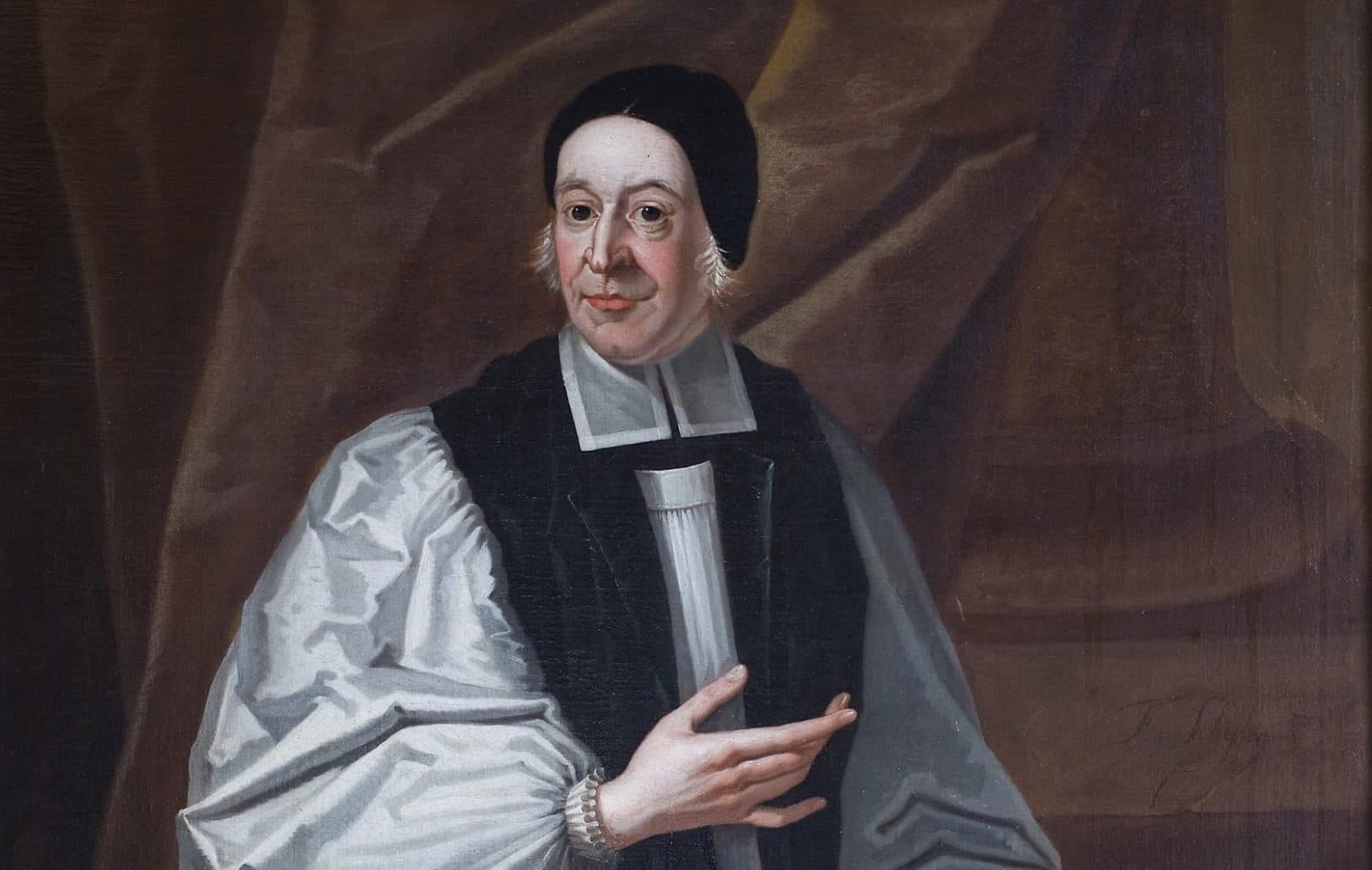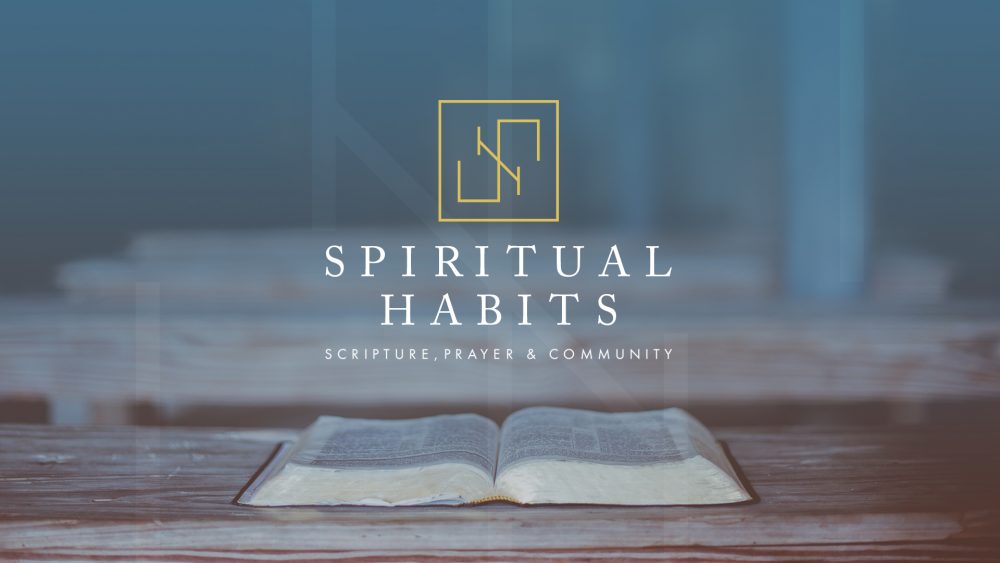What in the world is a doxology?
Derived from the Greek roots doxa, meaning “honor” or “glory” and logia, meaning “to speak,” a doxology is short song of praise to God. Doxologies are often used to punctuate Christian worship services. For instance, doxologies are often sung as a part of the communion liturgy, and also after the day’s offering has been taken.
What is “the” doxology?
While any short hymn of praise can serve as a doxology, when Protestants refer to the doxology they are referring almost exclusively to a very particular song set to a very particular tune.
That very particular song comprises just four short verses: Praise God, from whom all blessings flow; Praise Him, all creatures here below; Praise Him above, ye heav’nly host; Praise Father, Son, and Holy Ghost!
And that very particular tune is an old, old one written by the Huguenot composer Louis Bourgeois. Commonly known as “Old Hundreth,” this tune first appeared in the Genevan Psalter in 1551:
Click here to see the sheet music as pianist Andrew Remillard performs Old Hundreth
Where do the lyrics of the doxology come from?
The lyrics of the doxology are actually a part of another, much longer song called Morning Hymn by the Anglican Bishop Thomas Ken. While the doxology that we know and love consists of just four, short verses, these verses are pulled from the last of Morning Hymn’s 14 stanzas!
Also of note, it took multiple revisions over the course of decades for the language of the doxology to reach it final form. It was first published in 1674, but it wasn’t until the 1709 that Thomas Ken’s original wording of “Praise him above ye Angelick Host” became the “Praise him above ye Heavenly Host” that is so familiar to us.
View all 14 stanzas of Thomas Ken's Morning Hymn
- Awake, my soul, and with the sun
Thy daily stage of duty run;
Shake off dull sloth, and joyful rise
To pay thy morning sacrifice. - Thy precious time mispent, redeem,
Each present day thy last esteem ;
Improve thy talent with due care,
For the great day thyself prepare. - In conversation be sincere,
Keep conscience as the noon-tide clear :
Think how all-seeing God thy ways
And all thy secret thoughts surveys. - By influence of the light divine,
Let thy own light to others shine,
Reflect all heaven’s propitious rays,
In ardent love, and cheerful praise. - Wake, and lift up thyself, my heart,
And with the angels bear thy part,
Who all night long unwearied sing
High praise to the eternal King. - I wake, I wake; ye heavenly choir,
May your devotion me inspire,
That I like you my age may spend,
Like you may on my God attend. - May I like you in God delight,
Have all day long my God in sight,
Perform like you my Maker’s will,
O may I never more do ill. - Had I your Wings, to Heaven I’d fly,
But God shall that defect supply,
And my Soul wing’d with warm desire,
Shall all day long to Heav’n aspire. - All praise to Thee who safe hast kept,
And hast refresh’d me whilst I slept.
Grant Lord, when I from death shall wake,
I may of endless Light partake. - I would not wake, nor rise again,
And Heav’n itself I would disdain ;
Were’t not Thou there to be enjoy’d,
And I in Hymns to be employ’d. - Heav’n is, dear Lord, where e’er Thou art,
O never then from me depart ;
For to my Soul, ’tis Hell to be,
But for one moment void of Thee. - Lord, I my vows to Thee renew,
Disperse my sins as Morning dew,
Guard my first springs of Thought and Will,
And with Thy self my Spirit fill. - Direct, control, suggest, this day,
All I design, or do, or say,
That all my Powers with all their might,
In Thy sole Glory may unite. - Praise God, from whom all blessings flow,
Praise Him all Creatures here below,
Praise Him above ye Heavenly Host,
Praise Father, Son, and Holy Ghost.
How was the doxology originally used?
While in most churches, the doxology serves as a way to “Thank you!” to God at different points in a worship service, Thomas Ken had much grander ambitions for his song. Ken believed that his Morning Hymn could play an integral role in an overall regimen of spiritual health and fitness.
Here is how he prescribes it to be used in the introductory text that appears before the song in his Manual:
As soon as ever you awake in the morning, . . . strive as much as you can to keep all worldly thoughts out of your mind, till you have presented the first-fruits of the day to God, which will be an excellent preparative, to make you spend the rest of it better, and therefore be sure to sing the morning and evening hymn in your chamber devoutly, remembering that the Psalmist, upon happy experience, assures you that it is a good thing to tell of the loving kindness of the Lord early in the morning, and of his truth in the night season.
Several hundred years later, the suggestion that singing a little song each morning could convey any serious spiritual benefit seems quaint. At least it would seem quaint if Thomas Ken himself was not such a bonafide spiritual bad@$$!

From the Hymnology Archive – Stanzas of “Morning Hymn” in the pages of Thomas Ken’s exhilaratingly titled book, “A Manual of Prayers for the Use of the Scholars of Winchester College”
In what way was Thomas Ken a spiritual gangster?
To people whose first daily activity is to scroll through their social media feeds, the idea that we should wake up and sing a little song to God seems old-fashioned, if not entirely out-of-touch. This advice of Thomas Ken would be much easier to write off, however, if he himself did not have so much spiritual swagger – we’re talking swagger that let him to go toe-to-toe with kings!
In a now famous incident, King Charles II came to visit the city of Winchester where Ken was serving as a parish priest. Charles brought along with him his mistress, the actress Nell Gwynne. The king asked Ken to provide lodging for her in his home.
To the chagrin of the king and to the shock of his colleagues who thought he was tanking his future career prospects, Ken adamantly refused. He would not let his home be used to aid and abet adultery, even by the king. When pushed on the matter, Ken quickly declared that his house was under repair and had a builder take off the roof!
Either tickled by his audacity or moved by his honesty, the king did not take offense. And when a new bishop was needed to fill a vacancy the following year, King Charles said that none should have the position but “the little … fellow that refused his lodging to poor Nelly.” Then, as the king neared his death, it was Thomas Ken who served as the his personal chaplain.

From the British Library – King Charles II, who admired Thomas Ken’s pluck (and fancy schmancy clothes, apparently)
When Charles’ successor, King James II, came into power, he issued a decree known as the Declaration of Indulgence. Essentially, it would allow Catholics to seize power in an increasingly Protestant England. Ken and six other bishops refused to endorse it. For their stand, they were summarily imprisoned in the Tower of London by orders of the king. However, the people of London rioted until the bishops were freed; they were carried in triumph through the streets of the city.
King James II was eventually forced into exile and was succeeded by King William III and Queen Mary II. William and Mary began their reign by demanding oaths of allegiance from all persons holding public positions, including bishops. Thomas Ken refused because he had sworn allegiance to James, and felt that he could not swear allegiance to another monarch without making such oaths a mockery. Unlike King Charles II, William and Mary did not find Ken’s pluck admirable and he was removed from his position. Even so, Ken did not back down from his position, choosing instead to spend the rest of his days as a private tutor.
What does Thomas Ken and his doxology have to teach us about the love of God?
What does it take to be a person who consistently stands up for what is right, who does not hesitate to speak truth to power? According to both Thomas Ken’s advice and his example: it takes work.
You can’t just flip a switch one day and become a person who acts boldly in love. It takes time. It takes effort. It takes preparation.
Which is to say, Ken’s suggestion that we begin and end our days with a song of praise to God isn’t him being sanctimonious. It’s him offering a practical suggestion for how we might ground our daily lives in the love of God. Sure, nowadays we might opt for reading a devotional over singing aloud in our bedrooms, but his insight here is spot on.
In order to be the the type of person who really lives in light of the fact that they are loved by God and is truly ready to share that love with others at moment’s notice, we have to find ways to exercise our love muscles everyday.
Check out the messages from our “Spiritual Habits” series to learn about practices that, like Thomas Ken’s “Morning Hymn,” can help you ground your life in love:
Are there different versions of the doxology?
While the lyrics that Thomas Ken first penned will always be the OG of doxologies, countless other versions have been written over the years. Some have been made to remedy the song’s gendered lyrics. Others have been made for seasonal use. Others simply to breathe fresh life and ideas into this now traditional format.
Below are a collection of alternative doxologies for your use and enjoyment. The author is noted whenever they are known:
The Original Doxology
Praise God, from whom all blessings flow;
Praise Him, all creatures here below;
Praise Him above, ye heav’nly host;
Praise Father, Son, and Holy Ghost!
– Thomas Ken
Gender Inclusive Doxologies
These versions of the doxology cleave fairly closely to Thomas Ken’s original. Small changes have been made to the lyrics in order to make them gender inclusive.
Praise God, from whom all blessings flow;
Praise God, all creatures here below;
Praise God above, ye heav’nly host;
Creator, Christ, and Holy Ghost!
Praise God, from whom all blessings flow;
Praise God, all creatures here below;
Praise God, for all that love has done;
Creator, Christ, and Spirit, One!
Praise God, from whom all blessings flow;
Praise God, all creatures here below;
Praise God, ye above host above;
Praise God, in wonder, joy, and love!
Praise God, from whom all blessings flow
in heav’n above and earth below!
One God, three persons, we adore:
to God be praise forevermore!
Praise God, from whom all blessing flow;
Praise God, all creatures high and low;
Praise God, in Jesus fully known;
Creator, Word, and Spirit One.
– Brian Wren
Creative Doxologies
These are versions of the doxology that go beyond just editing the original. They incorporate fresh language and new names and images for God to breathe new life into the four-line form of the traditional doxology.
To God, all glorious heavenly light;
To Christ, revealed in earthly night;
To God, the Spirit now we raise;
Our joyful songs of thankful praise.
– Charles Coffin
Praise God, the Source of life and birth;
Praise God, the Word, who came to earth;
Praise God, the Spirit, holy flame;
All glory, honor to God’s name!
– Ruth Duck
Praise God, whose life and grace belong
to good and bad, to weak and strong;
whose ways are not our human ways,
whose mercy gladdens all our days!
– Mary Luti
Praise God whose love will never cease,
whose justice raises up the least
and sits all creatures at the feast—
God’s mercy is our hope and peace!
– Mary Luti
Praise God, the source of breath and birth,
who formed us from the dust of earth,
and made us kin in unity
to love and set each other free.
– Mary Luti
Praise God, whose image we all bear;
Praise Christ, whose mercy we all share;
Praise Spirit, making justice grow—
One God from whom all blessings flow!
– Mary Luti
Praise God, who made all people one,
whose healing work is never done,
who calls us steadfast to abide
in mercy at each other’s side.
– Mary Luti
Praise God whose many names abound:
Our Judge, our Rock, our Holy Ground.
Our Home, our All, Earth’s Majesty,
Love, Spirit, Light, and Mystery. Amen.
– Nancy S. Taylor
Praise God, from whom all blessings flow;
Praise Christ, the Word in flesh born low;
Praise Holy Spirit evermore;
One God, Triune, whom we adore.
Seasonal Doxologies
Many churches follow a traditional liturgical calendar, each season of which they highlight different themes. The doxologies below were written to speak to themes of different liturgical seasons.
Advent
O Glorious God, to you we bring Praise,
treasures, lives as offering;
Spirit of Hope/Peace/Joy/Love, within us dwell;
Come, Jesus, our Emmanuel.
– Paula Meador Testerman
Christmas
Praise God for miracles of birth,
Praise Light that shines o’er all the earth,
Praise Love incarnate, come to dwell
On earth with us: Emmanuel.
– Jocelyn Gardener Spencer
O Glorious God, to you we bring praise,
Treasures, lives as offering;
Come Holy Spirit within us dwell;
Born is the Christ, Emmanuel!
– Paula Meador Testerman
Lent
Praise God throughout these forty days;
Praise Christ, our Lord, whom God did raise;
And praise the Spirit who imparts
God’s love in Christ into our hearts
– G.W. Dub Shepherd
Palm Sunday
With palms we come to praise our King,
“Hosanna” is the song we sing,
All praise the One who rides this day,
And brings us hope in ev’ry way.
– John H. Danner
Easter
Let trumpets sound and voices sing!
Let all on earth their praises bring!
For Christ has conquered sin and death
And given life eternal breath.







